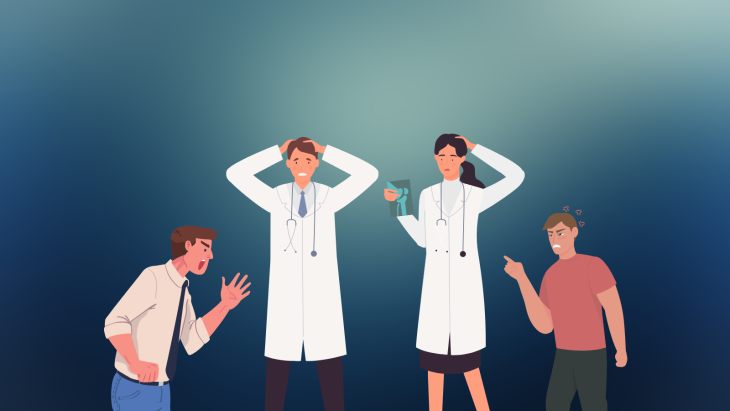Recent Posts
- I broke up with my partner, but now I am having doubts. Did I do it out of the right reasons or was I just being fearful?
- My Quick Temper Pushes People Away. What Do I Do To Manage My Anger?
- How does noise affect my mental health?
- I want to be a better problem solver. What is a step by step approach?
- Escapism. When is it healthy? When is it damaging?
Most Popular
After Making A Critical Medical Error, I Feel Devastated And Worried About Its Impact On My Reputation As A Healthcare Professional. How Can I Regain The Trust Of My Patients And Colleagues?

Despite our best efforts, medical errors happen. Humans have limitations and the system can be partly blamed for these mistakes. At least, it used to be. This problem was partly solved because of the Libby Zion Law.
The Libby Zion Law was made to prevent residents from working 36-hour shifts. The father of Libby Zion accused the young doctors of murdering her daughter even though it was just an honest mistake. His father claimed that the lack of sleep and rest caused a lack of judgment in these young doctors. Objectively, it happened because there was a rare counter-interaction between the drug administered and the drug Libby took before getting admitted to the hospital.
Back then, counter-interactions of drugs were only mentally memorized by doctors. This includes the rare ones including the case for Libby. Now, there is a digital system where doctors can validate the drugs they prescribe.
Back to your crisis at hand, it is okay to feel devastated. That is completely normal because you have done something that you never intended to and your whole future is on the line. Based on the experience of other physicians and health practitioners who have been through this, here are the best things that you can do:
Apologize
Speaking openly and sincerely without taking offense can disarm the patient and go a long way toward mending any ill feelings between the patient and you. It's crucial to be nice and kind in these conversations and not prioritize your perspective over the patients'.
Being nice is always the proper thing to do and it does not make you weak or naive. On the contrary, it demonstrates your competence in knowing when something has gone wrong and, more significantly, your desire to try to put it right. However, it's also a mistake to apologize right away. Apologies should be thoughtful and sincere or else they are pointless. A rushed or phony apology can occasionally be offered.
Insurance
Having medical malpractice insurance is going to be beneficial for you. This protects you financially especially if your patient takes you to court.
Accepting Consequences
There is no time for regrets. The best thing that you can do is focus on your present. Accountability requires accepting the consequences of your actions and learning from that experience.
Doing your Best in your Job
Being in a profession where you are required to be in your best shape mentally and physically requires self-care. Take your rest responsibly and avoid late-night parties.
#MedicalErrors #LibbyZionLaw #PatientSafety #ApologizeSincerely #MedicalMalpractice #AcceptConsequences #SelfCareMatters








Comments